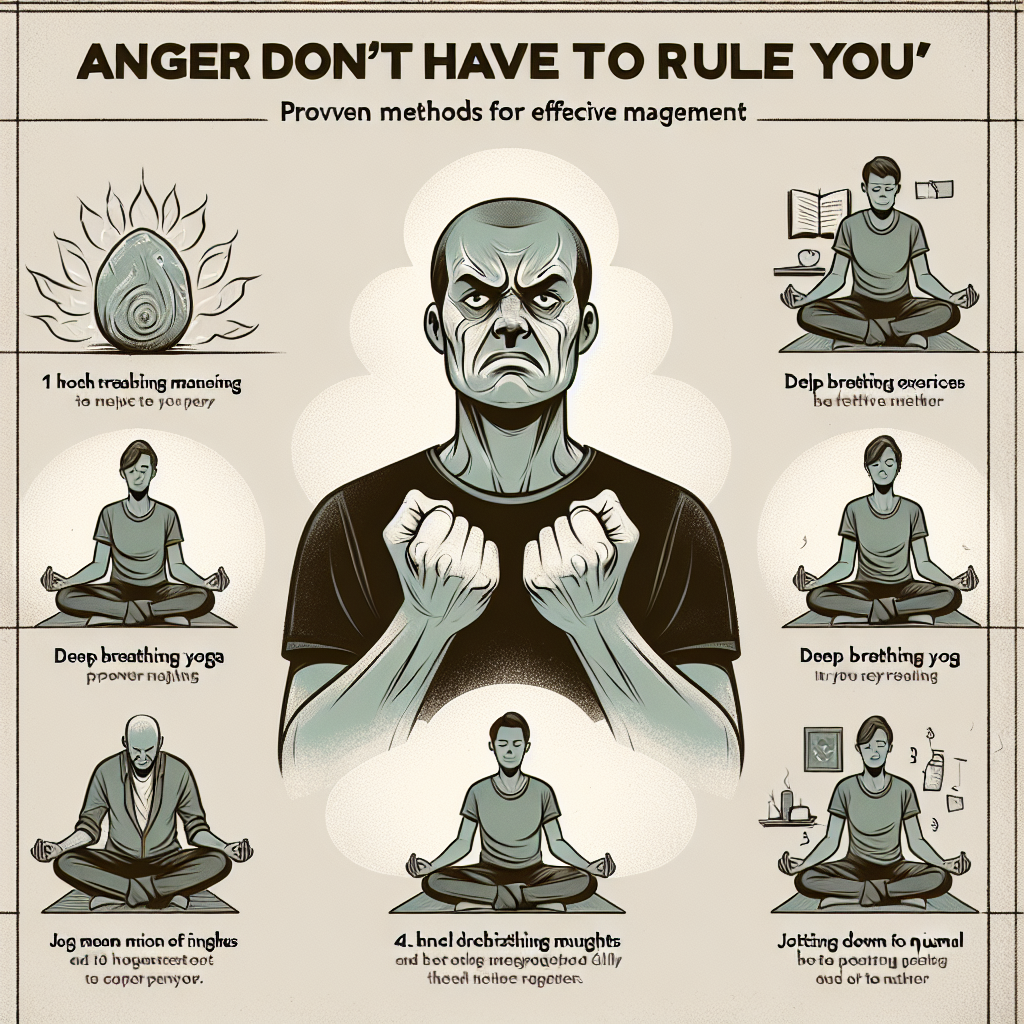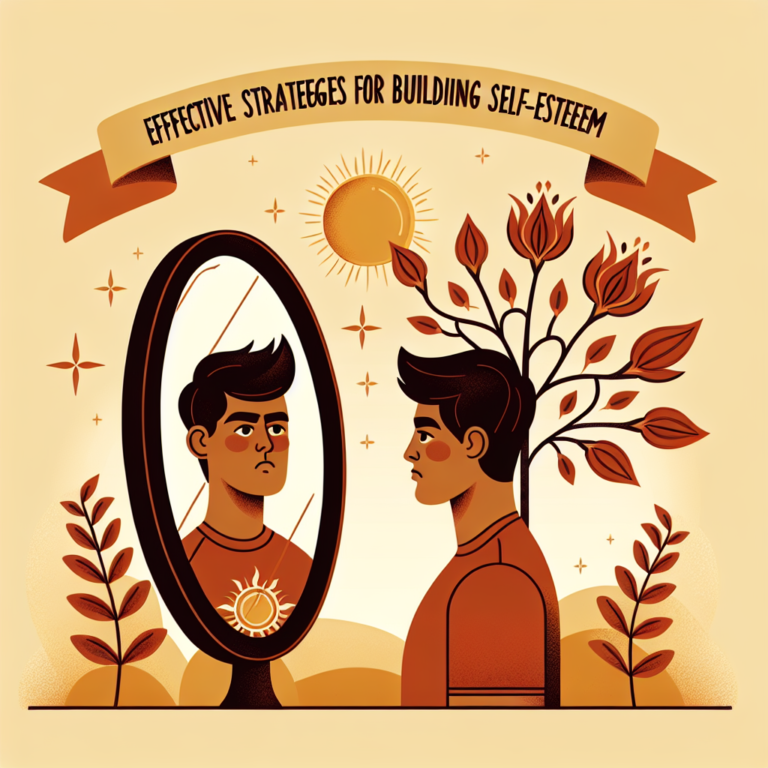
Anger Doesn’t Have to Rule You: Ultimate Proven Methods for Effective Management
Introduction
Imagine you’re stuck in traffic, and the minutes tick by as your frustration builds. You clench the steering wheel, and suddenly, a wave of anger floods your senses. In moments like these, it can feel as though anger has taken control. Yet, it doesn’t have to be this way. Anger Doesn’t Have to Rule You: Proven Methods for Effective Management is not just a catchy phrase—it’s an essential truth that can lead to transformational change in your life.
Understanding anger management can significantly improve relationships, work dynamics, and overall well-being. With the right strategies, we can learn to foster healthy emotions and respond constructively to triggers. This article will explore various proven methods, share valuable insights, and help you regain your autonomy over your emotions.
The Nature of Anger
Understanding Anger: A Double-Edged Sword
Anger is a natural human emotion, often arising in response to perceived threats or injustices. While it can motivate us to take action and advocate for ourselves and others, it can also lead to destructive behavior if left unchecked. Understanding the dual nature of anger is crucial to managing it effectively.
The Cycle of Anger
- Trigger Event: Something happens that stimulates a negative reaction.
- Emotional Response: Immediately, anger surges, and our body reacts with increased heart rate and adrenaline.
- Behavioral Response: We react, often impulsively, to the anger.
Recognizing this cycle is the first step in breaking it. Anger Doesn’t Have to Rule You: Proven Methods for Effective Management involve strategies to disrupt this cycle, enabling a more constructive response.
Proven Methods for Anger Management
1. Recognize Your Triggers
Understanding what triggers your anger is fundamental. Triggers may vary from individual to individual, but common ones include:
- Stressful situations: Like deadlines or conflicts.
- Interpersonal dynamics: Such as perceived slights from friends or colleagues.
- Physical discomfort: Such as hunger or lack of sleep.
Case Study: Sarah, a project manager, discovered her irritation stemmed from unmet expectations at work. By identifying her trigger as "unclear communication," she started implementing regular team check-ins.
Table 1: Common Triggers of Anger
| Trigger | Description |
|---|---|
| Stressful situations | Work deadlines, personal pressures |
| Interpersonal conflicts | Disagreements, misunderstandings |
| Unmet expectations | Tasks not being completed as promised |
| Physical discomfort | Hunger, fatigue, illness |
| Injustice | Perceived wrongs against self or others |
2. Pause Before You React
Taking a moment to pause can create a gap between the trigger and your response. During this pause, consider:
- Breathing exercises: Inhale deeply, hold for a count of four, then exhale slowly.
- Counting to ten: A classic method that can help you regain control.
Case Study: Tom, a father, found himself snapping at his children when overwhelmed. By implementing a 10-second pause before responding, he noticed a significant reduction in explosive reactions.
3. Practice Mindfulness
Mindfulness involves being present in the moment and acknowledging feelings without judgment. Techniques include:
- Meditation: Spend even a few minutes a day focusing on your breath.
- Journaling: Write down what triggers your anger and note your feelings in a non-judgmental way.
Research has shown that mindfulness practice can reduce the frequency and intensity of angry responses.
4. Use “I” Statements
Communicating how you feel rather than blaming others can diffuse tension. For instance, instead of saying, "You never listen to me," try "I feel ignored when you look at your phone during our discussions." This technique encourages constructive dialogue.
5. Channel Your Energy
Physical activity can be a powerful outlet for anger. Activities such as running, swimming, or even practicing martial arts can help you release pent-up emotions and improve your mood.
Case Study: Mark, a sales executive, adopted a routine of jogging daily post-work. He reported feeling more relaxed and less irritable after physical exertion, showcasing how exercise can mitigate anger’s grip.
Emotional Regulation Techniques
6. Cognitive Behavioral Therapy (CBT)
CBT is a method that focuses on recognizing and altering negative thought patterns. By reframing perspectives, individuals can challenge irrational beliefs that fuel anger.
- Thought Record: Keep track of your thoughts during angry situations and analyze them afterward.
7. Develop Problem-Solving Skills
Anger often stems from feeling powerless. By equipping yourself with problem-solving skills, you can handle situations more effectively, reducing the likelihood of anger.
Techniques Include:
- Brainstorming solutions: Identify potential ways to address a problem.
- Setting small, achievable goals: Tackle issues step-by-step.
8. Seek Social Support
Talk to friends or family about your feelings. Sharing can provide relief and offer perspectives you hadn’t considered.
Case Study: Lucy attended a weekly support group for individuals struggling with anger management. The shared experiences helped her employ similar strategies successfully.
Conclusion
Anger Doesn’t Have to Rule You: Proven Methods for Effective Management empower us to reclaim control over our emotional states. By recognizing triggers, pausing, practicing mindfulness, and employing various strategies, we can transform our relationship with anger from adversary to ally. This management journey not only enhances personal well-being but also strengthens our connections with others.
As you embark on this path, remember: the power to manage anger lies within you. Take those first steps today, and embrace the calmness that follows.
FAQs
1. What is anger management, and why is it important?
Anger management involves techniques and strategies designed to help individuals control their anger. It’s crucial for maintaining healthy relationships, reducing stress, and promoting overall well-being.
2. Is it normal to feel angry?
Yes, anger is a normal human emotion. However, how we express and manage that anger makes a significant difference in our lives and relationships.
3. Can exercise really help with anger management?
Absolutely! Physical activity releases endorphins, which can improve mood and help manage stress, thus aiding in anger regulation.
4. What are "I" statements, and how do they work?
“I” statements are a communication technique that focuses on expressing how you feel rather than blaming someone else. This can neutralize conflict and pave the way for constructive dialogue.
5. Do I need professional help for anger management?
If anger is affecting your relationships or daily life significantly, seeking help from a therapist or counselor can be beneficial.
Remember, Anger Doesn’t Have to Rule You: Proven Methods for Effective Management provides the tools and insights you need to channel your anger positively, ensuring a more peaceful and fulfilling life. Use this knowledge wisely, and watch as your emotional landscape transforms for the better.

















